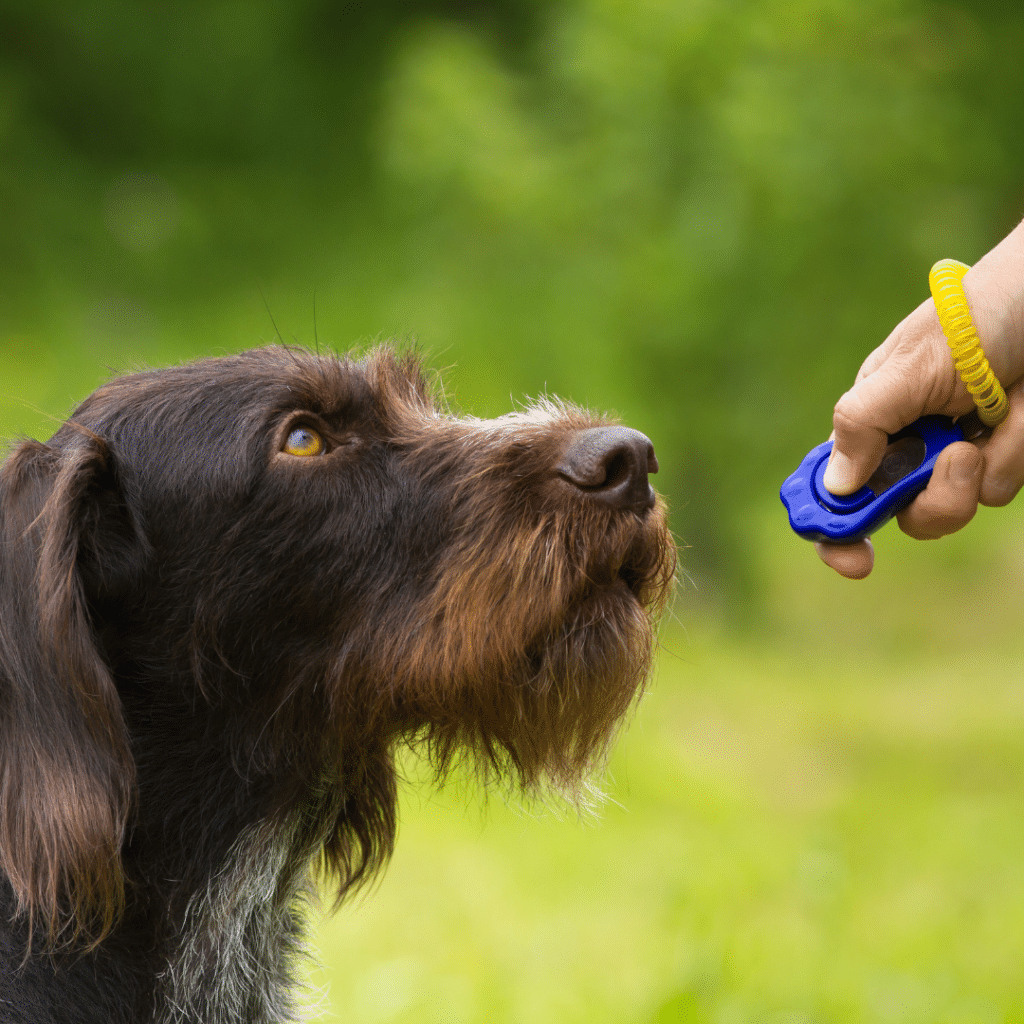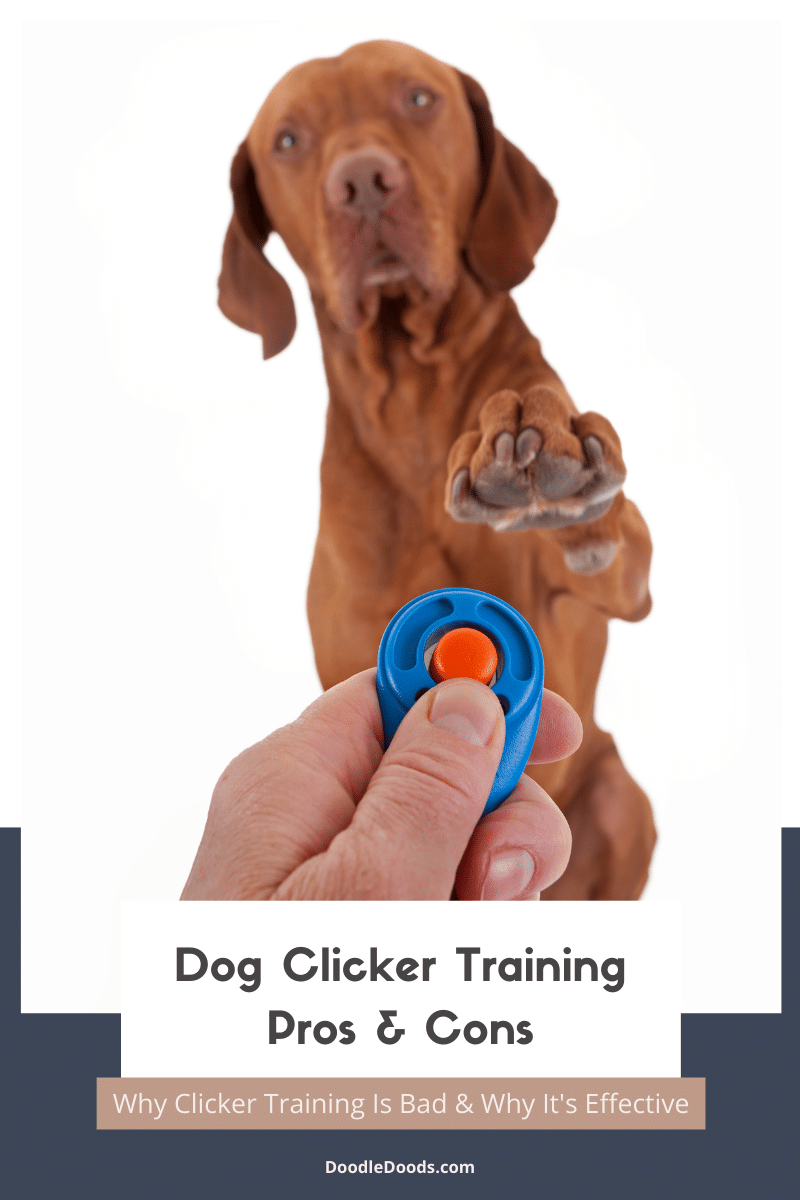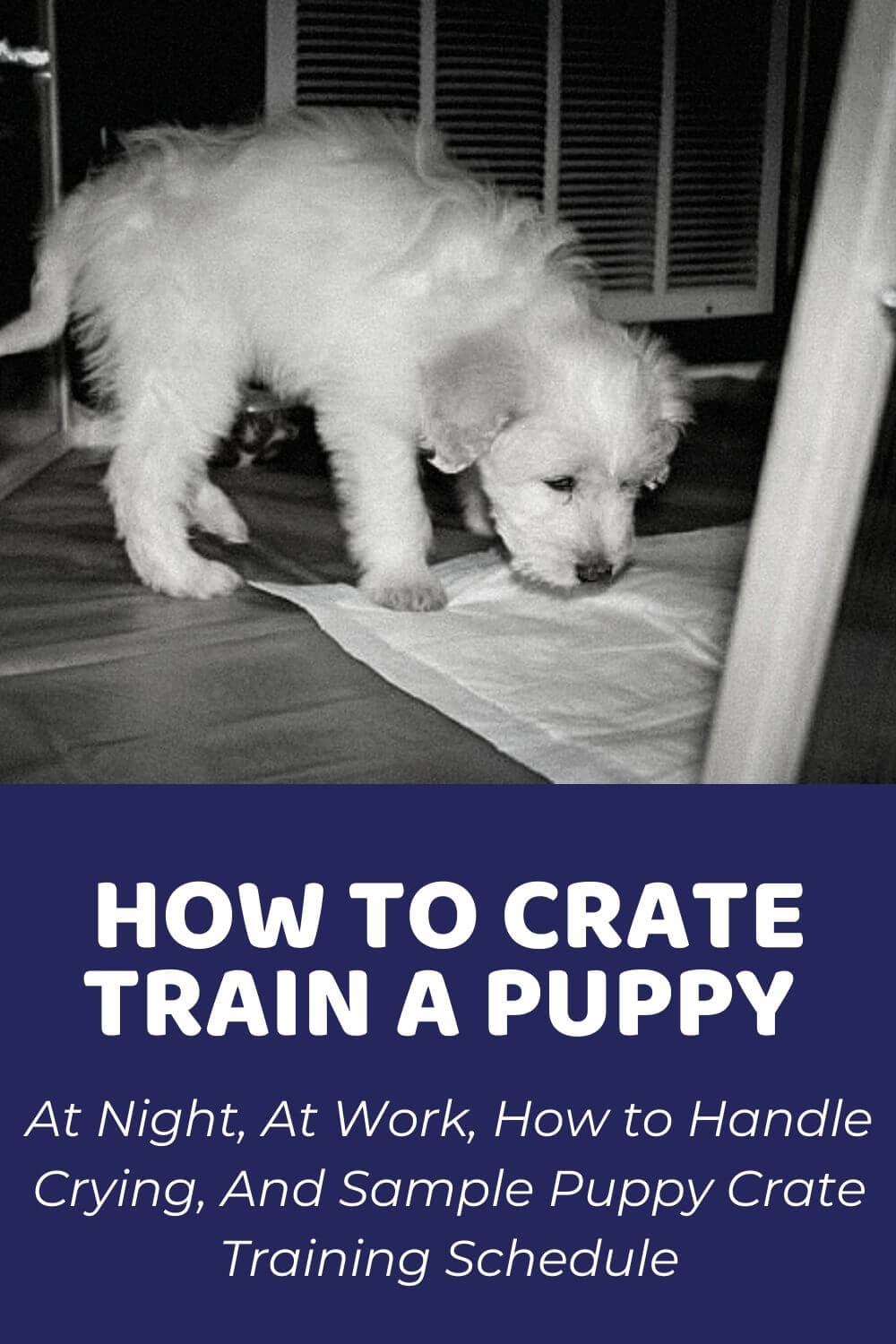Clicker training is without a doubt one of the most popular and well-known training methods, but is it really a good method to train your pup with? In this article, we’ll discuss dog clicker training pros and cons, as well as why clicker training is bad and why it’s effective. With our insights and recommendations, you can make the right decision for both you and your canine pal.
Table of Contents
- Dog Clicker Training: Introduction
- What Is Clicker Training For Dogs?
- Does Clicker Training Really Help?
- Dog Clicker Training Pros And Cons
- How To Use Clicker Training The Right Way?
- Dog Clicker Training Frequently Asked Questions
- Dog Clicker Training Final Thoughts
Dog Clicker Training: Introduction
If you’re a proud dog parent, you know all about the huge responsibility of having to train your puppy from a young age. After all, how else will your lil’ pooch learn what’s expected of them, and what are the appropriate manners both inside the house and while out and about.
Clicker training is by far one of the most popular training methods for dogs – it’s even the preferred method by countless dog trainers and breeders! But, what is clicker training, exactly? And why should you consider it? Is clicker training good even? That’s exactly what we’re going to find out in this guide, so that you can make the best decision when it comes to raising your dog.
What Is Clicker Training For Dogs?
Clicker training is an effective and fun way to train dogs. It’s a form of positive reinforcement training, where you reward your dog for behaving well. It involves using a small handheld device, known as a clicker, to make a distinctive sound. When your pup performs the desired behavior correctly, the sound is followed by an immediate reward, such as praise and treats. This reinforces the desired behavior in your dog’s mind and can be used to teach complex behaviors over time, while also building a strong bond between you and your dog.

Essentially, clicker training involves a process of communication between you and your pup. The clicker is used as a form of positive reinforcement, providing an audible cue to your dog when they behave well or complete a task. This helps to clearly mark desirable behavior with an immediate reward, such as a piece of food or encouraging praise.
The great thing about clicker training is that your dog won’t have to guess whether or not they’ve done something right – the clicking sound is the signal that yes, they did behave as you expected them to. Over time, this encourages the dog to repeat the desired behaviors in order to get the reward.
Since dogs are very much motivated by food, providing your pup treats as a reward is by far one of the most effective ways to enforce those good behaviors. The key is to always reward those good behaviors, and it’s vital that you stay consistent with your cues. Of course, consistency is key with any sort of positive reinforcement training.
Does Clicker Training Really Help?
Yes! Clicker training has been shown to be an effective and humane way to train dogs. It is a gentle, positive reinforcement method that helps shape desired behaviors, while avoiding frustration and stress for both you and your pup.
Clicker training has a number of benefits that make it an attractive option for pet owners. After all, there’s a reason why so many dog owners, professional dog trainers, and dog breeders opt for this training method.
For instance, clicker training is an excellent way to have clear communication with your pup, as the clicker gives them a clear signal whether or not they successfully completed a task or behaved in a desirable way. This in turn helps you build a strong bond with your furry best pal, and helps your pup understand you better.
In addition to that, clicker training encourages your dog to associate desirable behaviors with rewards. This means that every time your pup performs a desired behavior, they receive an immediate reward, such as a treat or praise. Over time, this forms a positive reinforcement loop, which reinforces those behaviors and helps them to become habitual. That’s the basis of any sort of positive reinforcement training.
Moreover, clicker training allows you to be consistent in your training style. Not to mention, clicker training will provide your pup with an enjoyable and rewarding learning experience. That’s especially beneficial for highly intelligent dogs who thrive on learning new tricks and skills.
Dog Clicker Training Pros And Cons
By now we’ve already praised the clicker training method countless times. However, it isn’t without its own set of challenges. Let’s explore some of the pros and cons of clicker training to see if this method may be right for you and your pup.
Why Is Clicker Training Good: Pros
So, is clicker training good? Let’s first take a look at some of the pros of dog clicker training and why it may be a great option for you and your furry friend.
Clicker Training Is Easy
Clicker training is an easy way to teach your pup new behaviors. All you need is a clicker, some treats, and patience. Clicker training works by using positive reinforcement – associating good behavior with the sound of the clicker and rewarding it with treats and praise.
The clicker acts as a marker, so that your pup knows exactly when they’ve performed the desired behavior correctly. This makes it easier for them to learn quickly and accurately, as they won’t have to guess and study your behavior. You’ll simply mark desired behaviors with the clicker, reward your pup, and soon they’ll pick up on those cues.
Clicker training has been proven to be effective in teaching all sorts of behaviors, including different commands. Furthermore, you can also use clicker training to address problem behaviors, such as jumping on people or barking excessively.
Additionally, the great thing about clicker training is that everyone in the family can take part in it. Of course, everyone in the household should follow the same rules when dealing with the pup. However, your pooch won’t have to learn every individual’s behaviors and reactions in the household, as the clicker provides a very clear signal for your pup.
Clicker Training Helps You Bond With Your Pup
Clicker training is not only an effective way to train your pup, but it also helps you form a strong bond with them. By rewarding their good behaviors and reinforcing positive associations, your pup will learn to trust and respect you. Not to mention, your dog will absolutely love you for giving them treats if they behave well.
Of course, any sort of training gives you the opportunity to spend quality time with your pup. This helps create a stronger relationship with your dog that will last for years to come. It also allows you to closely observe your pup’s natural behavior, allowing you to better understand how they think and react in different situations. As your bond grows through the clicker training process, your pup will become more responsive and attentive when around you.
You Can Train Everything With A Clicker
With a clicker, you can train your pup to do just about anything. For instance, you can use the clicker training method for potty training. You can even teach your pup basic commands with it, such as ‘sit’, ‘stay’, ‘come’, and ‘down’, to name a few. But that’s not all! You can also utilize clicker training to address problem behaviors, like barking or digging in the yard.
In fact, professional dog trainers often use the clicker training method when training service dogs and therapy dogs! With patience and consistency, your pup will be able to learn all sorts of complex behaviors with the help of a clicker.
Clicker Helps You Train Large Dog Breeds Faster
Clicker training can also be a great tool when training large dog breeds. As we know, the clicker acts as a marker that lets your pup know when they are doing something correctly. This in turn helps speed up the learning process. Clicker training also decreases the chances of miscommunication between you and your pup, resulting in a smoother and more successful training experience overall.
Additionally, because it allows you to reinforce good behaviors quickly and efficiently, you can spend less time correcting unwanted behaviors and more time encouraging positive actions. That’s especially helpful with large-sized breeds, as you want to nip those unwanted behaviors in the bud. If undesirable behaviors like excessive digging or chewing go unnoticed, they can soon become much bigger issues. And if you’ve got a humongous pup, they can cause much more harm to you, your home, and other people, if you don’t deal with those behavioral issues early on.
Why Is Clicker Training Bad: Cons
Of course, clicker training might not always be the best choice for dogs and their owners. While it can be an effective method of training, there are some downsides to consider when deciding if this form of training is right for your pup. Here, we’ll explore why clicker training may not be the best option in some cases.
Clicker Training Is Not For All Dogs
Although clicker training is an effective way to train many dogs, it isn’t suitable for all breeds and temperaments. Some dogs may not respond well to clicker training because they don’t like the sound or find it too distracting. For instance, dogs that are fearful of the clicking sound or anxious may not be good candidates for clicker training.
In addition to that, some dogs simply aren’t motivated enough by food or treats. It’s difficult to believe, we know, but some of these pups are out there! On the other hand, sometimes they just don’t like the treat that you reward them with. A simple solution for that is to switch out the treat!
All in all, it’s vital to take your pup’s unique needs and temperament into consideration. Only then will you be able to find the most suitable training method for your precious pal.
Clicker Training Might Lead To Conditioning
So, if you’d like to learn why clicker training is bad, then we have one word for you – conditioning. In some cases this method of learning can lead to conditioning. For example, if your pup gets overly excited about the clicking sound, they may start to only perform those desired behaviors when they hear the clicker.
Ultimately, the goal of clicker training is to start gradually, and also phase out the clicker gradually once your pup has learned all of those desired behaviors you’ve taught them. However, that’s not to say that you HAVE to stop using the clicker. Rather the goal is to get your pup to a place, where they already understand what’s expected of them with vocal commands, so that you won’t be needing the clicker any longer.
Clicker Might Cause Confusion And Frustration In Dogs
When it comes to dog clicker training pros and cons, the obvious downside is that it can sometimes cause confusion or frustration. The clicking sound can be confusing to some dogs, since they may not understand what it means at first. However, this is typically an issue that you have to deal with in the very beginning. After all, your new puppy is still learning!
Additionally, if you don’t use the clicker consistently, then your pup won’t associate it with any particular action and may become frustrated instead. When using clicker training, it’s important that you’re consistent with your commands and rewards. This way, your pup knows exactly when they’re doing something right. The same goes for any type of training method, as it’s your responsibility to teach your dog those desired behaviors.
For instance, if you allow your pup to do something one time, but scold them for trying the same thing another time, this will only cause confusion and could lead to frustration down the line. In addition to that, you should always reward your pup after behaving well, so that they stay motivated. This is the key to successfully training your pup to become a well-behaved and confident adult.
How To Use Clicker Training The Right Way?
In order to use clicker training effectively, it’s important that you educate yourself on the basics. You must first understand how dogs learn and how to use the clicker training method correctly. This knowledge paired with patience and consistency is a surefire way to success!
First, you want to teach your pup to associate the clicking sound with an immediate reward, such as a treat, toy, or praise. So, you want to first click the clicker and then offer your dog a reward right afterwards. You might have to do this multiple times to teach your pup the connection between the clicker and treat.
If you don’t want to feed your pup too many treats, you can offer them a piece of kibble each time you introduce them to the clicking sound.
Next, you’ll want to establish an expectation with your pup by holding a treat in one hand and the clicker in the other. As soon as your dog completes the desired behavior, such as sitting, press the clicker and give them the reward. This teaches them that they have done something right and will associate that sound with reinforcing behavior. By the way, it’s best to start with simple behaviors and commands that they’re already familiar with.
In fact, you can even start by rewarding your pup with a click and then reward when they naturally do something that’s desirable. For instance, if they calmly sit while you prepare food. Or when they come to you or greet you calmly. Once your pup has successfully responded to simple cues, you can begin introducing additional commands with the same “click-and-treat” process.
Word Of Caution
Please keep in mind that you HAVE to be patient throughout this process. Your pup needs time to learn and respond correctly at each step. But, of course, it’s your responsibility to stay consistent and patient, and always send the same signals to your pooch. If at any point you’re sending mixed signals, it’s going to make the training process that much more difficult and time consuming. Needless to say, you should never use the clicker if they don’t respond correctly, as this could negatively impact their learning process.
Don’t Be Afraid To Get Help!
There’s no shame in having to admit that you can’t do it all on your own. Although there are countless free resources on dog clicker training (and other training methods) online, it might not be enough for you and your best pal.
If you feel like you’d benefit from some extra guidance, we absolutely recommend you check out the Online Puppy School by Baxter & Bella. This excellent program is fully online, and you can follow it from the comfort of your own home. What’s even better is that this program will teach you how to successfully train and raise your dog. This will surely further strengthen the bond you share. For a one-time fee, you’ll get a lifetime access to countless resources on any and all topics related to dog training!
Dog Clicker Training Frequently Asked Questions
The best way to stop bad behavior is to ignore it and not reward it with any sort of attention. Instead, you want to redirect your dog’s attention onto more desirable behaviors and reward them for behaving in such a way.
In that sense, clicker training is a great tool for not only teaching your pup desired behaviors, but also for curbing bad behavior. When your pup displays an undesirable behavior, redirect them onto a more desirable behavior. For instance, if you don’t want your pup to jump up and down when you come home, tell them to ‘sit’. As soon as they’ve calmed down and completed this task, you can mark the desired behavior with your clicker and then give them a reward.
It’s important to remember that consistency is key, so be sure to repeat this process every time your pup engages in undesirable behaviors.
Indeed, clicker training can be helpful for curbing excessive barking. Firstly, you want to consider the environment – if your pup doesn’t see the mailman every morning, they simply won’t be barking at them (or anyone) at the door, and the behavior won’t be enforced. Secondly, early socialization is key for your puppy to learn how to properly interact with other people and pets.
Now, when it comes to training methods, again, you’ll want to ignore any unwanted behaviors. In this case, the excessive barking. Then, you’ll want to use a command, such as ‘quiet’ or ‘enough now’ for them to stop barking. As soon as they behave in the desired way, use the clicker to mark the behavior, and then give them a treat.
For more tips and tricks on excessive barking, be sure to check out our in-depth guides Excessive Barking: Why Your Dog Does It And How To Fix It and So Your Dog Barks At Everyone (And Their Dog): Here’s Why & What To Do.
Likewise, you can also use the clicker training method for teaching your pup to stop biting. When they bite or engage in any undesirable behavior, ignore it and use a command such as ‘no’ or ‘ouch’. Then, redirect your dog from the bad behavior to a positive one, such as sitting quietly or playing with their toy. As soon as they obey your command, use the clicker and then provide them with a treat or toy as a reward. With consistent rewards and praise for good behavior, your pup will soon learn that biting is not acceptable and start to defer to more appropriate behavior on command.
Your pup may be scared of the clicker sound because it startles them. Dogs have much better hearing than humans and can hear a clicker from far away. This sudden loud noise can be enough to scare some dogs, causing them to become fearful or anxious around the sound of a clicker. To address this, try using softer clicks with your clicker (for example, click it only when it’s in your pocket), as well as introducing it slowly over time. Start by clicking it quietly a few feet away from your pup and gradually increase the volume as they become comfortable with its sound. With patience and persistence, you should be able to desensitize your pup to the sound of the clicker so that it no longer frightens them.
It could also be that your pup is scared of the clicker because they have associated it with an unpleasant experience in the past. If you have used a clicker to ‘mark’ bad behavior such as barking or biting without providing a reward, your pup may associate the sound of the clicker with something negative. To fix this, you should use the clicker to mark good behavior instead and ensure that rewards follow immediately afterwards.
Clicker training can be stopped once your pup has fully grasped the desired behavior. If you have been consistent with rewarding good behavior and using the clicker to mark it, then your pup will eventually be able to associate their actions with the sound of the clicker. When this occurs, you can start gradually phasing out rewards while continuing to use the clicker to reinforce good behavior until they no longer need it as a cue. At the same time, you also want to use vocal commands, so that your pup learns desired behaviors without the help of a clicker. At this point, you can stop using the clicker altogether and just praise them for positive behaviors.
Dog Clicker Training Final Thoughts
Overall, clicker training is an effective way of teaching your pup new habits and breaking old ones through positive conditioning methods. Just remember that it will take some patience and consistency on your part for these techniques to work properly! We hope this guide managed to answer why clicker training is bad, as well as why it’s a highly effective positive reinforcement training method.
Learn How to Care for Your Doodle Puppy!

Perfect for first-time Doodle parents, get ALL your questions answered, including questions new Doodle parents don’t even think to ask.
Plus, get $700 worth of Bonus Materials for FREE, including:- Doodle Parenthood Community and Support Group ($190 value)
- Doodle Puppy Growth Tracker ($20 value)
- EMERGENCY Cheatsheet: When To Call The Vet Immediately ($50 value)
- HELP! Button ($145 value)
- And SO MUCH MORE!









